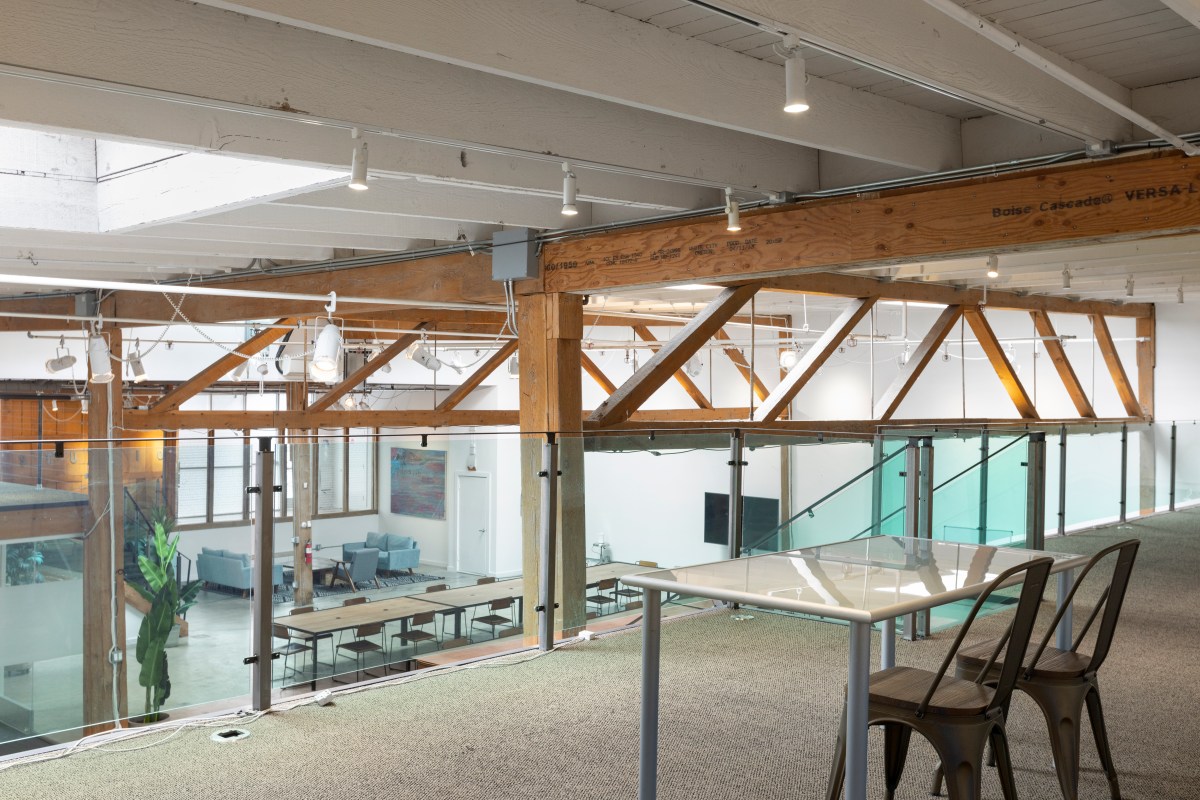We know that long-term leases aren’t the move anymore, but San Francisco–based Codi has a hotter take: neither is co-working. The company, co-founded by Christelle Rohaut and Dave Schuman, began in 2018 to create more flexible office space for companies whose employees want private, flexible workspaces.
These days, the startup’s most disruptive belief is one that disagrees with the co-working model popularized by WeWork. Unlike WeWork, which sold desk space in a shared floor to workers, Codi thinks that people want a private space to go to, just a couple days a week. The startup is a marketplace that matches companies to properties that fit their flexibility requirements. Then it helps make the move-in process go as smoothly as possible, from design to IT, to even the office snacks and cleaning services.
And, like most startups, it wants to have the best of both worlds: privacy and community, flexibility and dedicated space, scale and specialization.
Codi announced today that it has raised a $16 million Series A, led by Andreessen Horowitz. The investment occurred weeks before the firm announced that it invested in Flow, WeWork founder Adam Neumann’s next bet — both investments show the firm’s interest in a more flexible, yet turnkey future of real estate.
Rohaut is not too worried about sharing a venture backer with WeWork’s founder. A16z investment partner Jeff Jordan took a seat on Codi’s board as part of the round, while Marc Andreessen is joining Flow’s board, according to the New York Times. The firm recently announced its plans to go be a “remote-first” organization.
“A lot of our companies come from WeWork because they want to graduate from it,” Rohaut said in an interview with TechCrunch. She says that the top two priorities for companies today are first, having their own space so they can build and grow the company’s culture and customize it to fit their needs, and second, find a space for employees to go to that isn’t concentrated downtown and doesn’t require long commute times. Codi, the co-founder says, offers the best of both worlds where there’s the flexibility of working from somewhere, sometimes, and the uniqueness of private office space.
It may be true that tech workers largely do not want to go into the office five days a week anymore, but as employers try to figure out what the new in-person cadence should be, a flexible office space could also introduce its own frustration. Codi needs to convince employers that it makes more sense to go to a flexible workspace managed through Codi than to open up a smaller, independent office.
Codi claims that it has reduced the time it takes to open an office from upward of six months to four weeks. Codi is able to reduce lease lengths from 36 months to six months, with options to extend the contract if necessary. It also offers a concierge team to carry out all of its different services, which the startup claims could save tens of thousands of dollars per year.
On the real estate side, Codi doesn’t own any buildings. Instead it partners with building owners to create recurring revenue streams for properties that traditionally only would have made money from long-term tenants or an entire building scale. The co-founder declined to share specifics around the amount of customers it currently has but said that the startup has more than 100 office buildings across two regions: New York and the Bay Area.
It’s a smart pitch, with common scaling headaches to consider. For example, Codi will need to solve for shorter commute times with more and more hotspot offices for employees regardless of where they are home based. If that’s the case, the office may get more fragmented over time if trying to meet the needs of concentrations of employees. Kind of the opposite of the goals for in-person work.
There’s a common misconception between what people say they want and what people actually do. If there is one thing that hybrid work has taught us, it’s that the world changes its mind constantly. Even with a flexible lease, what happens if a startup wants to go from two days a week to five days a week for a stretch of time? It’s not necessarily Codi’s challenge to address, but it could certainly complicate the broader vision of developing flexible, private workspaces.
